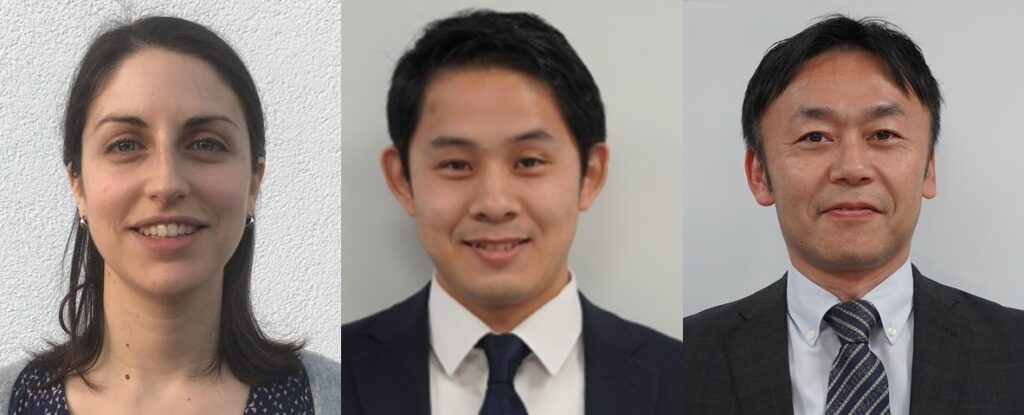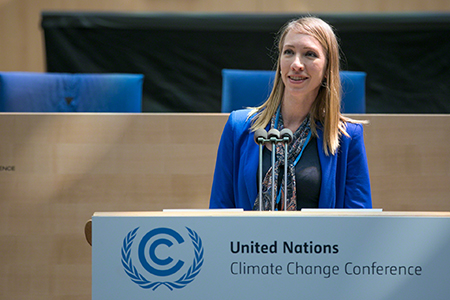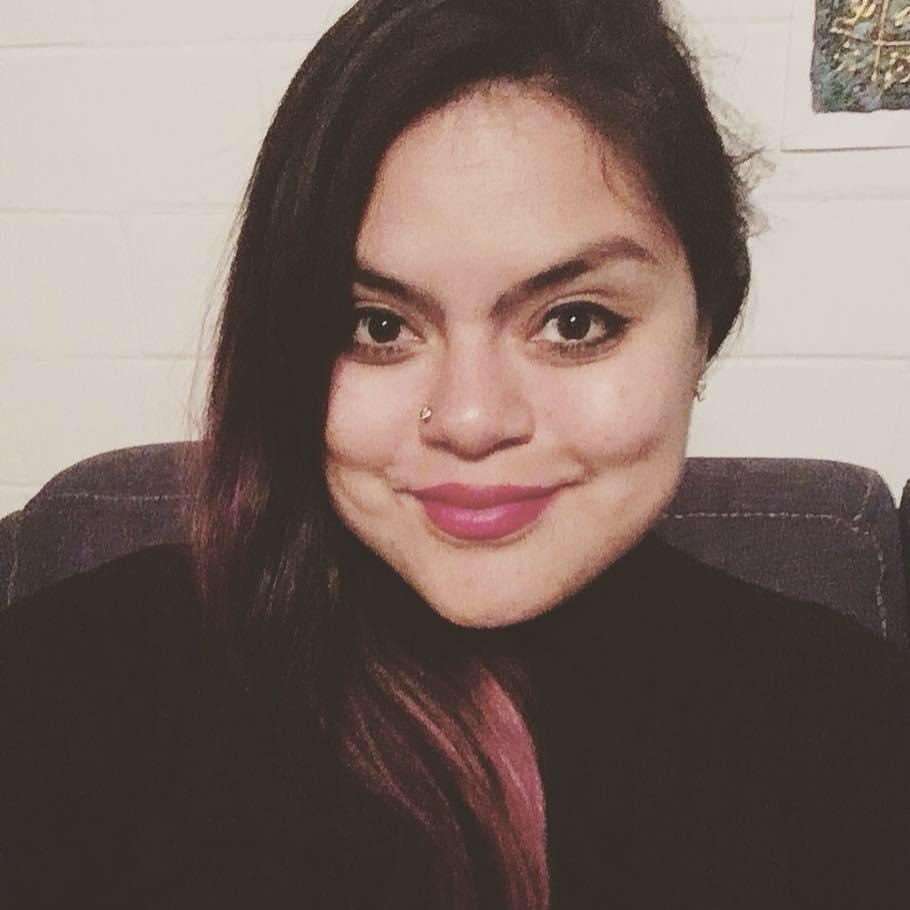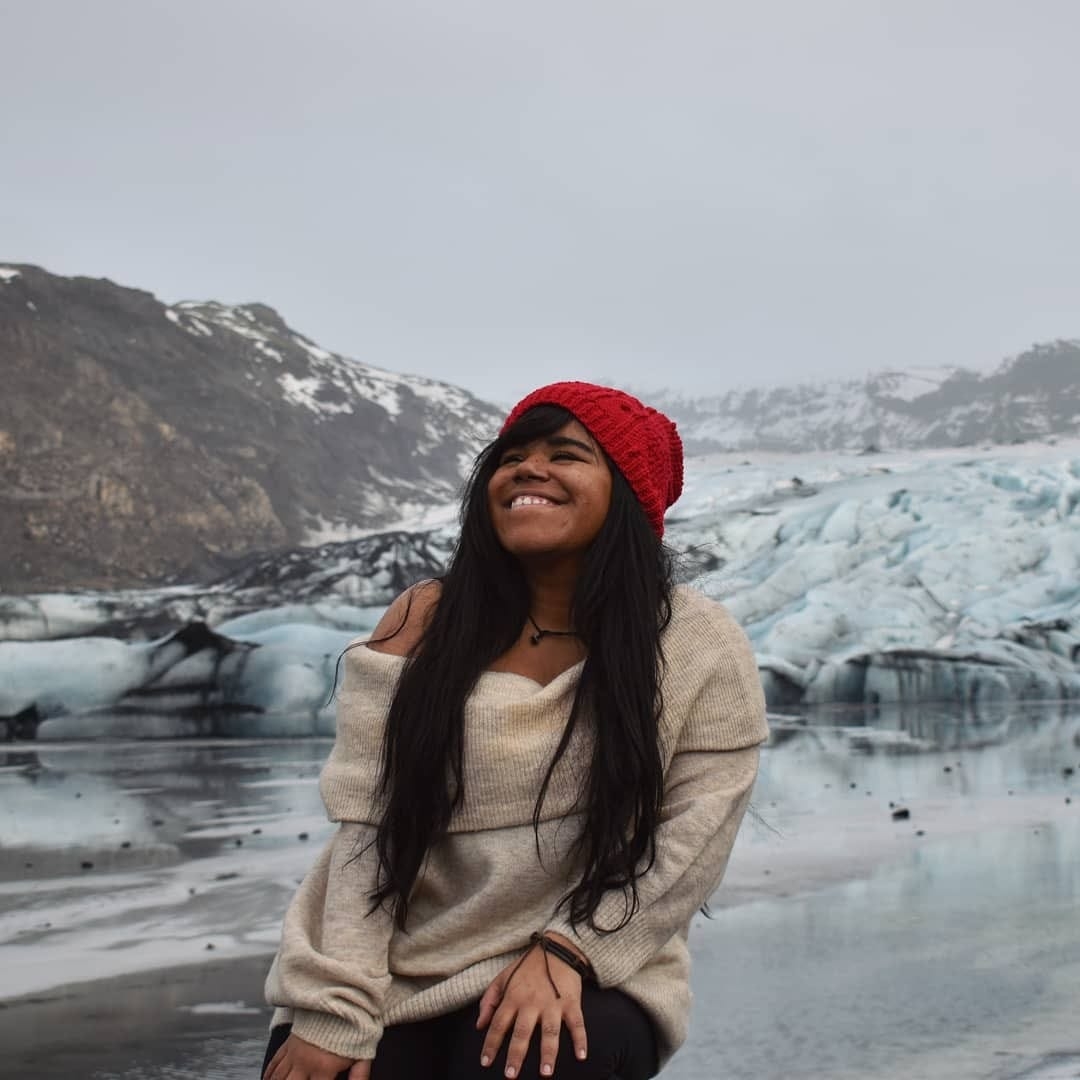Special Events Online
See our archives of past calls below.
Contact mark@climateecos.org for additional information.
March 10- Seeds of Hope & Action
Dr. Alexandra Masako Goossens-Ishii, Hayato Yamashita and Nobuyuki Asai will present an overview of Soka Gakkai International (SGI) engagement with the United Nations and some of their recent developments, such as the Mapting app for tracking actions to support the Sustainable Development Goals, and the recently updated Seeds of Hope & Action exhibition, jointly developed with Earth Charter International.
Soka Gakkai International (SGI) is a community-based Buddhist organization that promotes peace, culture and education. SGI collaborates with other NGOs, faith-based organizations and UN agencies to address global issues through activities such as raising awareness and engaging in dialogue grounded in the Buddhist teaching of respect for the dignity of life. Based in Tokyo, Hayato and Nobuyuki coordinate SGI’s work on climate and sustainable development issues. Based in Geneva, Alexandra coordinates SGI Office for UN Affairs’ advocacy work on climate change and the environment.

PAST CALLS
March 3- Development of an Action for Climate Empowerment (ACE) National Strategy in the United States
Building on the community developed An ACE National Strategic Planning Framework for the United States the ACE community and federal government are co-leading development and implementation of an ACE national strategy. An informed and engaged public is one of the most effective and equitable ways to accelerate a just transition to a resilient, low-carbon future. The United States has deep and diverse ACE resources—communities, businesses, networks, organizations, institutions, and individuals—working to advance the ACE objectives, yet their efforts are not strategically coordinated or aligned. Building an ACE national strategy in the United States will significantly enhance coordination and collaboration, create financial efficiencies, reduce duplication of effort, and improve the effectiveness of efforts to engage and empower the public in inclusive and equitable ways. Developing an ACE national strategy is a key step to accelerating climate actions in the United States. In the ECOS community call, the members of the ACE National Strategy coordination team will share our work and look forward to learning from what works around the world to advance ACE and develop ACE National Strategies. Learn about the initiative in the United States here: https://aceframework.us/
Frank Niepold is the Climate Education Coordinator at NOAA’s Climate Program Office in Silver Spring Maryland, Climate.gov Education section lead, Federal Lead for the ACE National Strategy Framework for the United States, a co-chair of the U.S. Global Change Research Program’s Education Interagency Working Group, the U.S. Climate Action Report Education, Training, and Outreach chapter lead for the U.N. Framework Convention on Climate Change (UNFCCC), Education and Youth delegate for the United States at the 2015 Conference of Parties (COP21), founding member of the CLEAN Network and co-chair of the CLEAN Network Leadership Board, and member of the Education, Communication, and Outreach Stakeholder Community (ECOS) Steering Committee. https://pbs.twimg.com/profile_images/648544313119379456/Ff8XUasw.jpg
December 9- Preview of ECOS Design Charrette in 2021- Shaping Climate Learning & Engagement at Local to Global Scales
Launched in 2016 at COP26 as a community supporting the climate learning and engagement goals of the UNFCCC and Paris Agreement, ECOS has been building its own capacity as it works to help others develop theirs. Volunteer driven with participants from around the world, ECOS now seeks to further evolve with the input of experts and enthusiasts around the world who share a vision of informed, innovative climate action at every level of society. Beginning in January 2021 and through a “design charrette” process, ECOS will be holding a series of online discussions to shape the organization and its future. This discussion with key ECOS members and stakeholders provides an overview of the Design Charrette process.
Nov. 25- Earth Day’s Climate and Environmental Literacy Initiative
Tracey Ritchie, PhD, Director of Education for EARTHDAY.ORG describes their global initiatives to advance climate and environmental literacy by harnessing the electricity of the grassroots movement and bringing it to national leaders at COP26 in Glasgow, discussing how educators, scientists and other allies from across the ECOS Network can help advance local and global policy.
Nov. 18- Capacity Building and Communicating Climate Change

Niyanta Shetye is a scientific assistant with the Brandenburg Technical University of Cottbus in Germany. He teaches international environmental law to master’s and bachelor’s students and has previously worked at the UNFCCC, UNU-FLORES, and UNCCD.
Join Niyanta on 18th of November as he shares his research on the smallest article of the Paris Agreement which is on education, training, public awareness, public participation, and access to information. Through his research, he investigates its progress and relevance in an era of rapid and uneven digital transformation specifically in Information and Communication Technologies. Through this call, he answers the following questions:
• What are the different initiatives taken by organizations under Article 12 of the Paris Agreement which have significant policy impacts?
• What are countries doing to enhance Article 12 of the Paris Agreement?
• Has digitalization made climate change communication effective and accessible in recent years?
October 21, 2020- Celebrating 10 Years of CLEAN- the Climate Literacy and Energy Awareness Network
Oct. 21- CLEAN – Celebrating the 10th Anniversary of the launch of the Climate Literacy and Energy Awareness Network website, an online catalog of high quality, annotated and curated digital resources relating to climate, energy and sustainable practices. Several of the Principle Investigators involved in the initiative will provide an overview of the network and catalog: Tamara Ledley, Mark McCaffrey, Anna Gold and Frank Neipold.
October 14- UN CC: Learn- the One UN Climate Learning Partnership.
The One UN Climate Change Learning Partnership, also known as UN CC:Learn, is a collaborative initiative of 36 multilateral organizations working together to help countries build the knowledge and skills they need to take action on climate change. These include better climate literacy and other crucial skills to tackle this challenge. UN CC:Learn provides guidance and quality learning resources to support people, governments and businesses to understand, adapt, and build resilience to climate change. UN CC:Learn is supported by the Swiss Agency for Development and Cooperation (SDC).
September 16- Education and Actions for Sustainable Development and Climate Change
Dr. Rowe describes a variety of free resources and initiatives all designed to help shift societal norms to a more sustainable future, including Beyond Doom and Gloom: Climate Solutions, Growing Green Jobs, Sustainability Policy Partners,Sustainability Improves Student Learning, Sustainability Education and Economic Development, the Higher Education Sustainability Initiative , additional US Partnership initiatives and more.
August 19– Climate Change Education, Communication and Outreach: Insights from Australia and Malaysia
Students and faculty at Monash University in Melbourne, Australia share their insights and experience in a panel discussion on topics including: Sustainability and climate education at a grass-roots community level, How Higher education can empower agents of change, and Sustainability education initiatives in Malaysia.
July 29- ClimateChangeEducation.Org

A collaboration-building discussion following co-presentations by four Lowell Middle School students; their teacher, Natalie Stapert; and James Callahan, founder of ClimateChangeEducation.org.
The student presenters are volunteer members both of Mobile Climate Science Labs and Lowell School’s Climate Club. They describe examples where they bring hands-on climate science to tens of thousands of families, and how they are contributing to serious climate action at the city scale level. Video example.
Lowell School students are eager to connect with Climate Clubs and other student-based organizations around the planet: to learn from, to share and support one another. Video of the ECOS Community Call forthcoming.
July 22– GloCha, Digital Innovation for Climate Mobilization, and the Road to COP26

Dr. Miroslav Polzer, a founding member of ECOS, provides an overview of digital innovation, and the plans to prepare for COP26. Miro is the founder of IAAI (International Association for the Advancement of Innovative Approaches to Global Challenges), which aims to get everyone engaged in the implementation of global goals and especially climate action, IAAI’s main initiative is the global challenges multistakeholder partnership, GloCha.
July 8–
Powers of 10- seeking “sweet spots” for rapid climate and sustainability actions between individual and global scales (paper published in Environmental Research Letters).
Co-authors Avit K. Bhowmik, Mark S. McCaffrey, Abigail M. Ruskey, and Chad Frischmann provide an overview of their new model for thinking about scale and how to find the “best fit” for climate action.
Also see: Powers of 10 to the People! essay by Mark McCaffrey
June 24- The Climate Engagement Initiative: a call to action for national governments to step up their commitment to public engagement on climate change

George Marshall, Founding Director, Climate Outreach (Europe’s leading climate change communicators) introduces the Climate Engagement Initiative (CEI) is a high level, multi-partner, international initiative that is ambitious in its aim to strengthen national governments’ commitment to public engagement on climate change, so that it becomes ‘front of mind’ in the design and application of all climate policy. Only then can we bring about the broad social mandate that the world needs for meeting our emissions targets and adapting to climate impacts.
June 17- Large-scale CO2 removal: What is it and how can the youth help govern it?
The IPCC says that limiting global warming to 1.5°C requires not only big emissions cuts, but also removing CO2 from the atmosphere at a scale that has never been tried before. Many CO2 removal approaches have been proposed, including nature-based solutions, and technological approaches. But none are ready to be deployed at the scale and the speed necessary, and in all cases would bring risks, costs, and trade-offs, as well as potential benefits. There is currently insufficient international governance to manage the difficult decisions ahead. What role can young people play in governing large-scale CO2 removal?
June 10- #Learn4Climate Campaign
What is the #LearnForClimate Campaign? How does it relate to the goals of the UNFCCC Action for Climate Empowerment (ACE) initiative? How can I get involved? In this overview, the ECOS Team provides details about this new campaign to increase climate literacy and engagement at every level of society.
June 3- Europe’s Climate Pact and plans for a NDC Campaign in Latin America
European Commission’s Laura Maanavilja, who has served as the negotiator for the European Union with the UNFCCC’s Action for Climate Empowerment initiative, provided an overview of the EC’s ambitious Climate Pact, which has an open consultation requesting feedback until June 17, 2020. A webinar aimed at organisations and networks interested in the Pact is scheduled for 15 June.

Nationally Determined Contribution (NDC) Campaign- Latin America– Danae Espinoza and Isatis Cintron, both active ECOS members, offered an overview of plans for a campaign aimed at increasing ambition Action for Climate Empowerment (ACE) for Latin America through the Nationally Determined Contributions (NDCs). Further details of this initiative will be available soon.
. 

May 27- Rebooting Our Imaginations- a community check-in & round table discussion on Kim Stanley Robinson’s essay How the coronavirus is rewriting our imagination about ourselves, about the future, about climate change. Participants read and discussed the essay. Here is an excerpt:
The virus is rewriting our imaginations. What felt impossible has become thinkable. We’re getting a different sense of our place in history. We know we’re entering a new world, a new era. We seem to be learning our way into a new structure of feeling.
In many ways, we’ve been overdue for such a shift. In our feelings, we’ve been lagging behind the times in which we live. The Anthropocene, the Great Acceleration, the age of climate change—whatever you want to call it, we’ve been out of synch with the biosphere, wasting our children’s hopes for a normal life, burning our ecological capital as if it were disposable income, wrecking our one and only home in ways that soon will be beyond our descendants’ ability to repair. And yet we’ve been acting as though it were 2000, or 1990—as though the neoliberal arrangements built back then still made sense. We’ve been paralyzed, living in the world without feeling it.
May 20– Education for Transformation: The significance of paradigms, politics, and practices.
Dr. Karen O’Brien of the University of Oslo will examine “education for transformation,” and why it is so important to explore alternative paradigms and practices to empower climate change action. The Three Spheres of Transformation, focusing on the relationship between the practical, political, and personal dimensions of change, will frame discussion on activating “quantum social change”. A Professor in the Department of Sociology and Human Geography at the University of Oslo, Norway, Karen has published, written, and co-edited numerous books, including “Climate Change, Ethics and Human Security,” and “The Adaptive Challenge of Climate Change.” Her most recent book, co-authored with Robin Leichenko, is “Climate and Society: Transforming the Future.” She is currently involved with transformational leadership, Science Education for Action and Engagement towards Sustainability (SEAS), and the implications of quantum social theory for climate change responses.
May 13– ClimeTime: a model for climate learning. Dr. Deb Morrison of the University of Washington shares the progress made in Washington State in infusing climate science and solutions throughout the curriculum. ClimeTime is a state-led network for climate science learning that helps teachers and their students understand climate science issues affecting Washington communities, and it is fast becoming a model for other climate learning efforts around the world. Deb was born in rural Canada to a family of loggers and mariners and a scientist, an educator, a mother, a climate and anti-oppression activist, an elected official, and a member of the ECOS Core Team.

May 6– Office of Climate Education– Resources for teachers on Ocean and Cryosphere in a Changing Climate. Drs. Lydie Lescarmontier and David Wilgenbus of the IPCC Office of Climate Education share the work of their Paris-based organization. David Wilgenbus, who serves as Chief executive officer of the Office of Climate Education, is an astrophysicist by training. His expertise is the production of educational projects and the professional development of teachers. Lydie Lescarmontier is a glaciologist, specialized on the functioning of emissary Antarctic glaciers. From 2015 to 2017, she was vice-president of the French committee of APECS (Association of Polar Early Career Scientists) promoting education and science in polar regions, and today is a young researcher and polar guide in the Arctic and Antarctic. Slides of their presentation are available here.
April 29- Youth Climate Program– Jen Kretser manages The Wild Center’s climate change engagement programs including the Youth Climate Program, which was highlighted by the former White House Office of Science and Technology; interpretive programs for visitors; green building education and design; and the farmers market and other climate related initiatives and partnerships.
April 9- ECOS in Latin America
Isatis Cintron and Danae Espinoza provide background on the climate education, communication and outreach challenges in Latin America. April 9, 2020
Christina Kwauk of the Brookings Institute shares highlights of her paper Roadblocks to Quality Education in an Era of Climate Change. April 1, 2020
Emily Coren is a science communicator with a background in biology and science illustration, developing tools for producing cultural stories to improve the rate of climate mitigation and adaptation.
